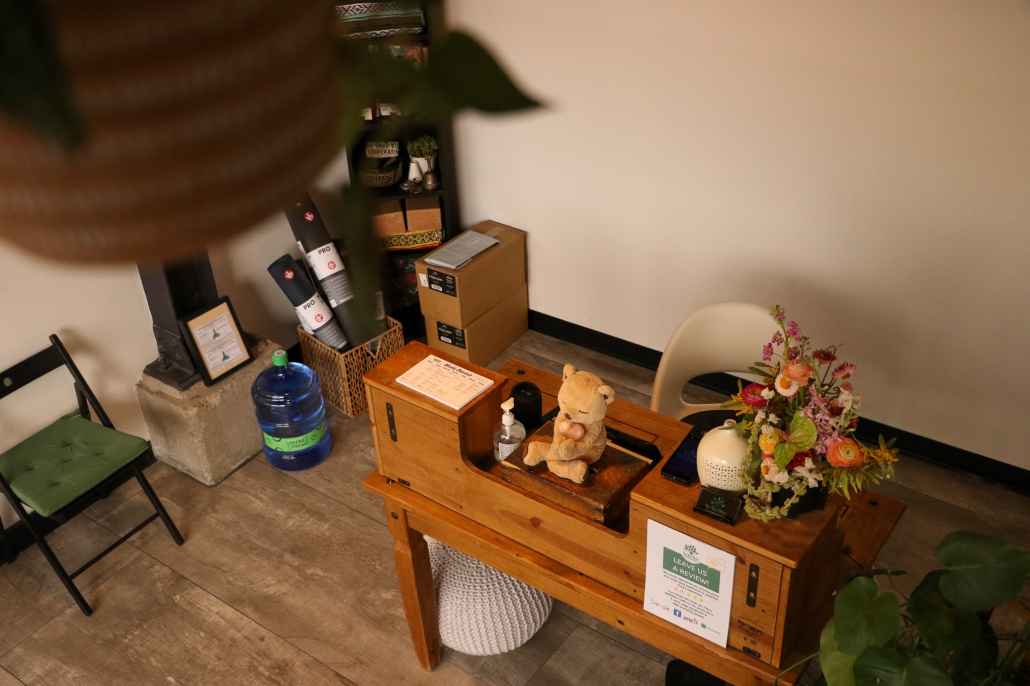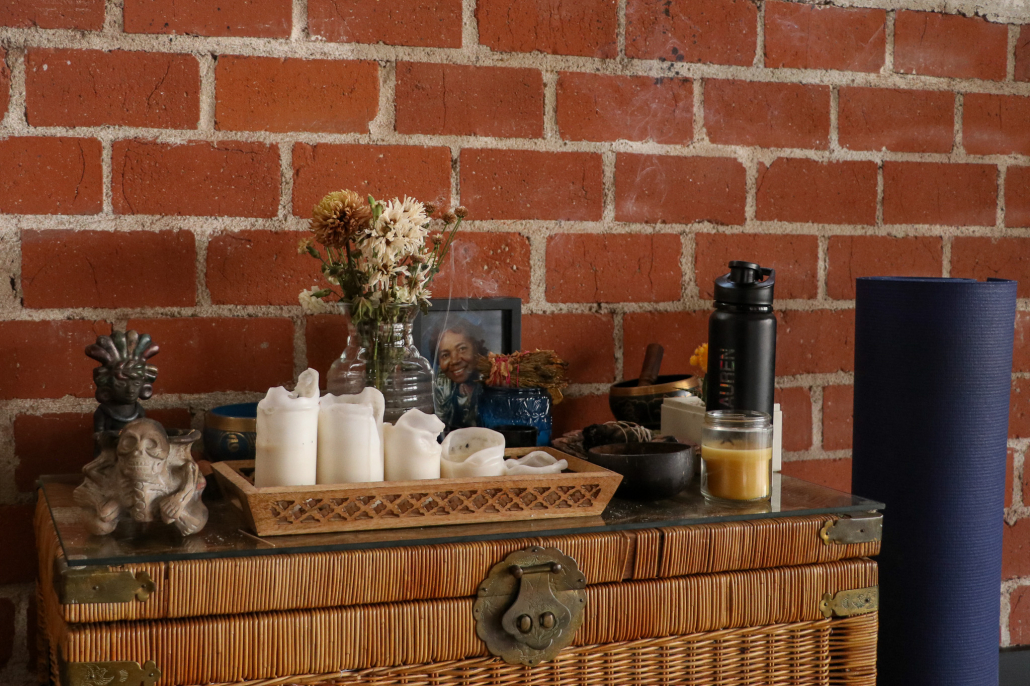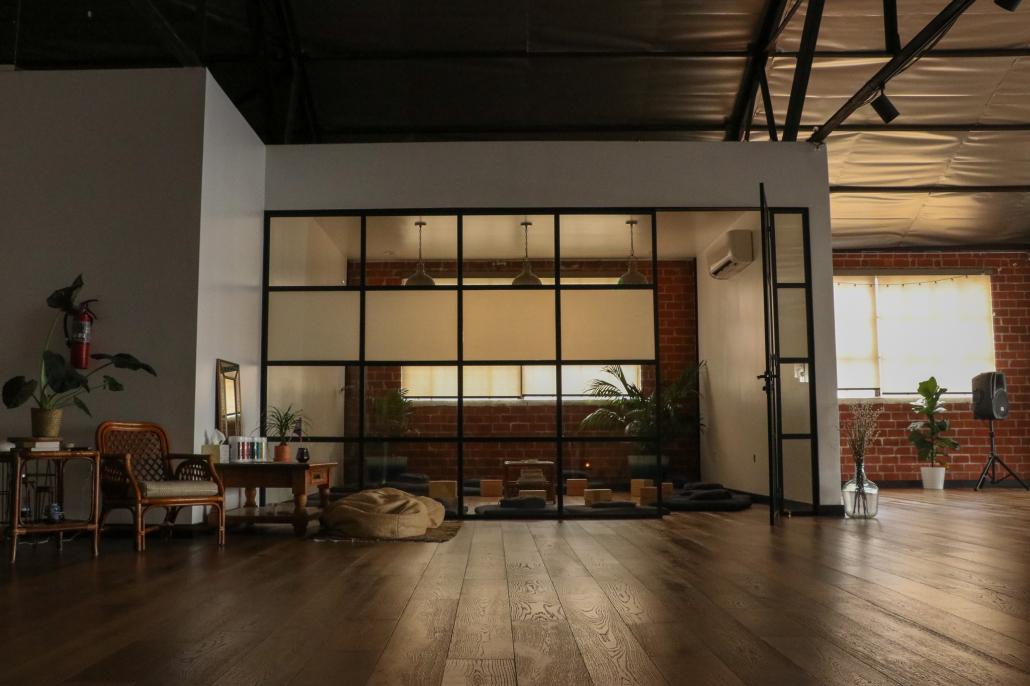Amid barren yoga scene, one South Central studio welcomes all
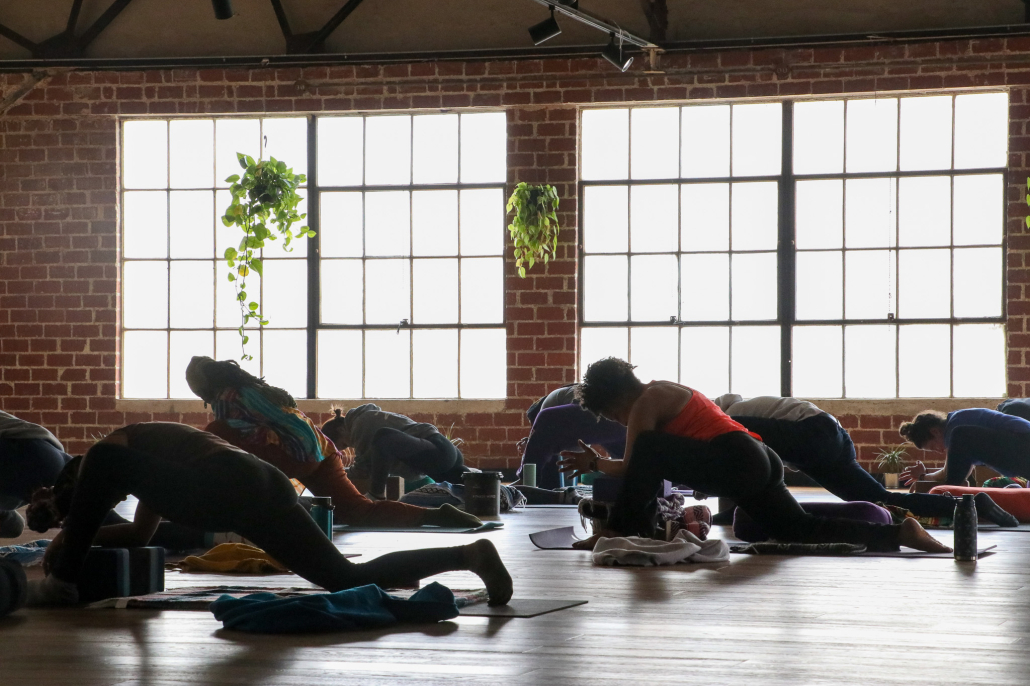
“Take a deep inhale through the nose. Long exhale through the mouth.”
Perched upon a yoga mat for her Thursday afternoon lesson, Lauren Ross slid effortlessly into the next position. She encouraged her six students to do the same, but at their own pace. Warm light diffused into the empty room through tall windows, and the scent of lemongrass and calm music hung thick in the air.
“Even in moments of challenge, or tension, we bring ourselves to our awareness, to our breath, and use our breath as a vessel for relaxation, for ease,” Ross said.
Compared to other, wealthier regions in Los Angeles, South Central has a distinct lack of yoga spaces — particularly those that welcome people of color, people of all body types and LGBTQIA+ people. The goal of The Tree Yoga Cooperative, a Black, Indigenous and people of color-owned studio on 60th St., is to change that.
“I’d only seen white women, thinner frames,” said Meketta Renee Ridgle, a regular at the Tree who has attended for at least four years. “But coming here was a reminder that [yoga] is for all bodies, and I definitely feel that.”
This need for a welcoming space led Raja Michelle to start the studio in 2013, then called the Green Tree Yoga Meditation Foundation. For seven years, the Tree continued its mission in relative peace and stability.
Once the coronavirus pandemic hit, however, financial difficulties led Michelle to eventually dissolve the nonprofit. In the immediate aftermath, she stepped away from leadership of the Tree and from teaching yoga entirely. The Green Tree closed down in March 2020, and the volunteers sold everything inside at a yard sale. They earned $600.
Later that year, in August, some former volunteers at the Tree found small opportunities to continue teaching yoga in South Central. They taught virtual classes to a business that had employees who were burnt out due to the pandemic. L.A. City Councilmember Marqueece Harris-Dawson hired the Tree to teach yoga at local parks.
“Little by little, we’re like, ‘Okay, we have enough money to make shirts. Let’s do that. We have enough money to get fliers out to different places,’” said co-owner Rita Ortiz-Contreras. “And little by little, it just started happening until we were like, okay, it’s time. We got to look into a place to move into.”
In June 2022, the Tree, renamed the Tree Yoga Cooperative, reopened at a new location in the Beehive, a multi-building complex of community-oriented small businesses. Its founders — Ortiz-Contreras, Jonie Cole Thomas, Jenni Alvarez and Jana Johnson — would continue the work they started at The Green Tree nearly 10 years before as volunteers.
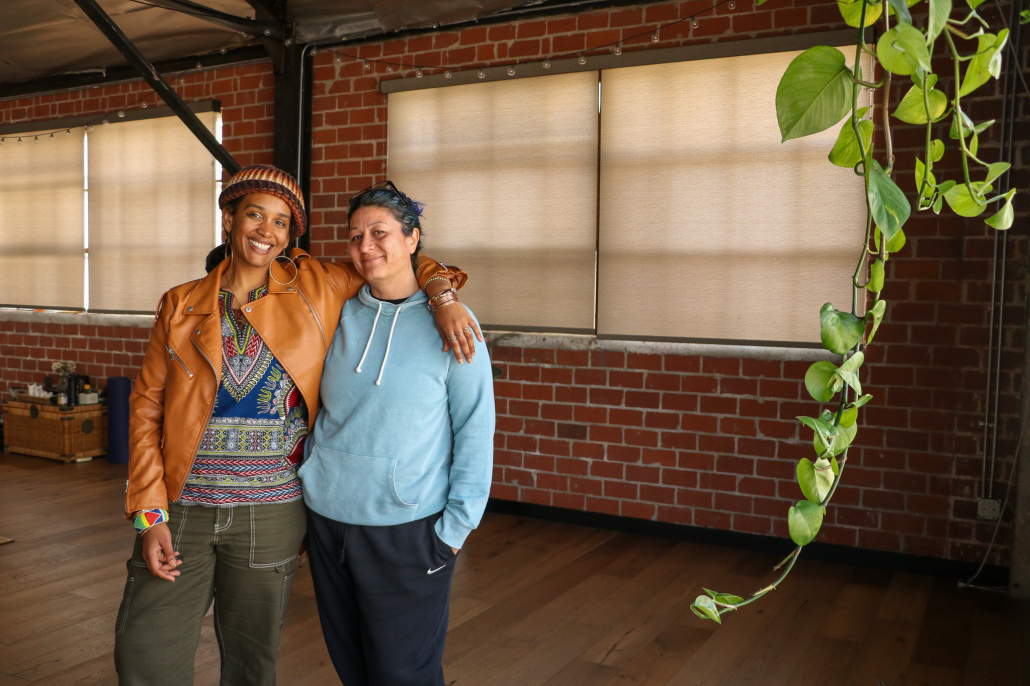
The Tree offers a variety of different classes focused on topics such as breathwork, restoration, healing and meditation. While some classes cost a fixed price, the Tree also offers donation-based classes where students pay what they can to make yoga more affordable for the community.
Desirae Cole, an attendee of the Tree for a few months, said that through the Tree she learned “the spiritualism that comes with meditation: the slowing down and giving gratitude.”
“Even in [today’s class], we thanked ourselves for being here,” Cole said. “Just holding space for gratitude collectively is a really good feeling.”
Additionally, the Tree hosts events such as a monthly sound bath, workshops on Kemetic yoga or Toltec philosophy and Black Liberation Week — a collection of free classes and workshops focused both on yoga and the concept of liberation — that has taken place annually for the past two years. The latter event, in particular, stems from Ortiz-Contreras’ belief that yoga and social justice are inseparable.
“Yoga without social justice for me now is just like, ‘Wait, what? Why?’” Ortiz-Contreras said. “Why would you do yoga and not understand the social justice part of it? Because a lot of our community members have been impacted with racial discrimination.”
Although yoga is a practice that originated in ancient India, the Tree has expanded its philosophy to include teachings from other ancient societies, such as the Toltec civilization from South America and the ancient Egyptian civilization in Africa.
“We’re Black and brown people,” Ortiz-Contreras said. “All these different philosophies from all these ancient cultures just mirror yoga. So the best thing is that you get Indus Valley yoga, you get Toltec philosophy, you get Kemetic [Ancient Egyptian] philosophy, and everyone can relate to it.”
At times, the traditional yoga teachings practiced by the Tree conflict with the lived experiences of its participants. For the teachers at the Tree, preaching messages that veer into toxic positivity is insensitive to situations that students may be in, Ortiz-Contreras said.
“What we try to amplify is the message of: If there’s space in you to look outside of yourself, and know that you are not in immediate danger, give yourself that space to breathe and focus,” Ortiz-Contreras said. “And maybe that will allow you to confront those situations.”
